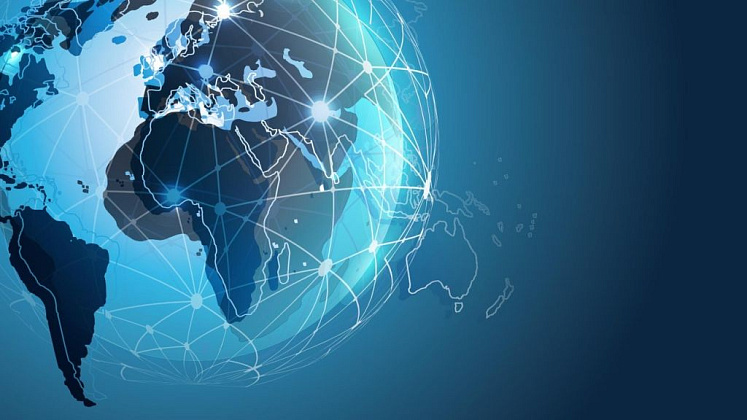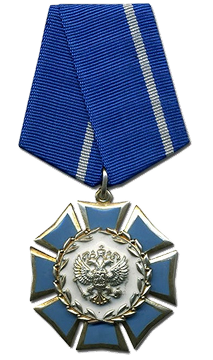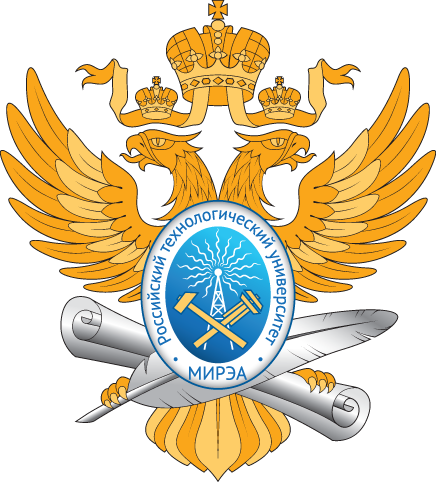09.03.02 Information systems and technologies
Students who chose this area of specialization receive training in the development and operation of geoinformation systems, processing and analysis of spatial data, development of geoportals, geo-services and business solutions for a wide range of consumers in the public and private sector. Students study modern technologies for collecting, storing, analyzing and visualizing spatial data, including Earth remote sensing and three-dimensional data, methods for developing geographic information systems and geographic databases.
Level of education:
Bachelor's degree
Form of training:
Full-time (daytime)
Venue of training:
Moscow
Entrance exams:
— Mathematics (major)
— Russian language
— Informatics and ICT \ Physics
— Russian language
— Informatics and ICT \ Physics
Programs, specializations:
Geographic information systems

As part of the program, students study technologies for creating geoinformation systems, applications, services and solutions based on spatial data, methods of modeling and visualizing spatial objects in 2D and 3D, master modern software in cartography, geoinformatics and processing of aerospace images. Students profoundly study computer technology and the specifics of the operation of geoinformation systems and complexes. In a modern technical university, students receive in-depth knowledge and skills in specialized IT technologies. Classes are held in modern educational laboratories.
Alumni can be employed as
- specialists in geographic information systems (GIS specialists)
- developers of geographic information systems (GIS programmers)
- spatial data analysts (GIS analysts)
- programmers
- web developers
Program subjects
- Automated processing of aerospace images
- Introduction to professional activity
- Geography
- Geoinformation mapping
- Geoinformation analysis
- Geo-marketing
- Geoportals and geo-services
- Decoding of aerospace images
- Publication of digital cartographic materials
- Infographics in geographic information systems
- Cartography
- Mathematical cartography
- Mobile geographic information systems
- Modeling of transport networks
- Legal regulation in geographic information systems
- Cloud technologies in geographic information systems
- Basics of Geodesy
- Basics of geographic information systems
- Fundamentals of Earth Remote Sensing and Photogrammetry
- Basics of cadastral activities
- Basics of organizing monitoring of hazardous natural and man-made processes and emergencies
- Industry geographic information systems
- Registration of digital maps and atlases
- Application of geoinformation technologies in urban planning and territorial administration
- Programming in geographic information systems
- Design and use of geodatabases
- Creation of digital terrain and terrain models
- Three-dimensional geoinformation modeling
- Expert systems based on geoinformation technologies
- Educational Activity
-
Institutes
- Institute of Information Technologies
-
Institute of Artificial Intelligence
- About the Institute
- Institute Administration
- History of the Institute
-
Training programs
- Bachelor's Degree Programs
-
Master's Degree Programs
- 01.04.02 Applied mathematics and information science
- 09.04.01. Informatics and computer engineering
- 12.04.04 Biotechnical systems and technologies
- 15.04.04 Automation of technological processes and production
- 15.04.06 Mechatronics and robotics
- 27.04.03 System analysis and management
- 27.04.04 Engineering system control
- Infrastructure
- Alumni
- Contacts
- Institute for Cybersecurity and Digital Technologies
-
Institute for Advanced Technologies and Industrial Programming
- About the Institute
- Institute Administration
- History of the Institute
-
Training programs
-
Bachelor's Degree Programs
- 09.03.02 Information systems and technologies
- 11.03.04 Electronics and nanoelectronics
- 12.03.05 Laser technology and laser techniques
- 15.03.01 Mechanical engineering
- 22.03.01 Materials science and technology
- 27.03.01 Standardization and metrology
- 28.03.01 Nanotechnology and microsystems engineering
- 29.03.04 Decorative material working techniques
- 54.03.01 Graphic design
-
Master's Degree Programs
- 09.04.02. Information systems and technologies
- 11.04.04 Electronics and nanoelectronics
- 12.04.02 Optical engineering
- 15.04.01 Mechanical engineering
- 22.04.01 Materials science and technology
- 27.04.01 Standardization and metrology
- 29.04.04 Decorative material working techniques
- 54.04.01 Graphic design
-
Bachelor's Degree Programs
- Infrastructure
- Alumni
- Contacts
- Institute of Radio Electronics and Informatics
- Institute of Management Technologies
- Lomonosov Institute of Fine Chemical Technologies
- Institute of International Education
-
Mega-Laboratories
- Motion Capture Laboratory
- Immersive Technologies Laboratory
- Laboratory for the Development and Transfer of Microfluidic Technologies (DTMT)
- Cell Technologies Megalaboratory operating on the basis of the Department of Chemistry and Technology of Biologically Active Compounds, Medical and Organic Chemistry named after N.A. Preobrazhensky
- General Biotechnology Megalaboratory
- Industry 4.0: Digital Robotized Production center
- Laboratory of Intelligent Autonomous and Multi-Agent Robotic Systems
- Research and Educational Center for Biosynthesis, Isolation and Purification of Monoclonal Antibodies (Generium)
- Rare and Precious Metals Research and Technological Center operating on the basis of the Department of Chemistry and Technology of Rare Elements named after K.A. Bolshakov
- Laboratory of Analytic, Modeling, Design and Digital Prototyping Technologies
- Import Substitution of Information Technologies Educational and scientific testing complex
- Smart Production Systems Educational and Scientific Center
- Elastomers. Thermoplastics. Technologies Educational and Research Center operating on the basis of the Department of Chemistry and Technology of Elastomer Processing named after F.F. Koshelev
- Catalytic and Mass Exchange Processes center
- Center of Innovative Technologies in Microelectronics
- Center for Cybersports Robotics
- Mobile Robotics University Laboratory
- Radio electronic Technologies Megalaboratory
- Departmental Situation Center of the Ministry of Science and Higher Education of the Russian Federation for monitoring the sphere of education and science
- Scientific and Educational Center for Medical Radiology and Dosimetry
- Laboratory of Geographic Information Systems and Technologies
- Educational and Research Center for Space Monitoring ("CosMoCenter")
- Additive Polymer Technologies Center
- Cyber Threat Research Megalaboratory
- Digital Center of Rosatom State Corporation
- Laser Technologies Megalaboratory
- Mathematical Modeling and Artificial Intelligence Megalaboratory
- Megalaboratory of Digital and Additive Technologies in Mechanical Engineering
- Nanomaterials and Nanostructures Diagnostics Center
- Techno-coworking
- TESLA Educational and Research Center
- Bachelor's Degree Programs
- Master's Degree Programs
- Additional Education Programs
- Physical Education and Sports
© 2026 MIREA - Russian Technological University




